
Negotiators Finalize Revisions to EU Anti-Money-Laundering Directive, Including Crucial Measures on Beneficial Ownership Transparency
United States Continues to Lag Behind International Progress on Key Element of Curtailing Illicit Financial Flows
WASHINGTON, DC – Global Financial Integrity (GFI) applauded the European Parliament and the Council of the European Union for agreeing yesterday to crack down on anonymous companies, a major conduit for laundering the proceeds of crime, corruption, and tax evasion. Just Tuesday, GFI released its annual flagship analysis of illicit financial flows from developing countries, which found that such flows—growing at nearly twice the rate of global GDP—reached a historic high of US$991.2 billion in 2012, the most recent year for which data is available.
By Liz Confalone, December 5, 2014

Slow but Steady Progress towards Curtailing the Abuse of Anonymous Companies
In June 2013, G8 leaders met in Lough Erne and agreed to a set of principles on beneficial ownership transparency. The principles state that companies should maintain their beneficial ownership information and that the information should be available to law enforcement and other competent authorities; additionally, countries were to consider making such information available to financial institutions and other regulated businesses. Trust information should be collected and available, the principles explained, but only to law enforcement. These principles were largely reiterated by the Financial Action Task Force (FATF)—the body setting international anti-money laundering standards—in their Guidance on Transparency and Beneficial Ownership in October 2014 and by the G20 in their High Level Principles on Beneficial Ownership in November 2014.
Despite the establishment of this baseline, momentum is building since Lough Erne to raise the bar. In July 2013, the UK began the process to establish a central register of information and, after a public comment period, determined that the register should be publicly available—a position strongly supported by Global Financial Integrity (GFI). In April 2014, the European Parliament approved provisions requiring formation of public registers as part of their draft of the European Union’s Fourth Anti-Money Laundering Directive (AMLD), but the E.U. Council and the E.U. Commission have yet to take a public position on the AMLD, delaying its final adoption. Just last month, Denmark announced that it, too, would create its own public registry of beneficial ownership information.
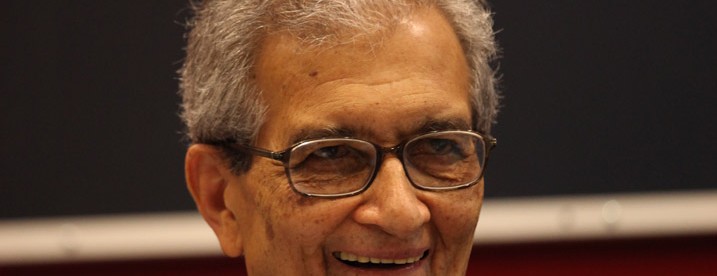
ASAP, GFI, and Yale Inaugurate Prize Honoring Nobel-Winning Economist Amartya Sen
2014 Contest Solicited Essays on Connection between Illicit Flows, Global Poverty, Inequality
WASHINGTON, DC / NEW HAVEN, CT – Academics Stand Against Poverty (ASAP), Global Financial Integrity (GFI), and the Yale Global Justice Program awarded the inaugural Amartya Sen Prize over the weekend to Max Everest-Phillips, Hamish Russell, and Gillian Brock for their essays on illicit financial flows, poverty, and inequality.
By Joshua Simmons, November 10, 2014
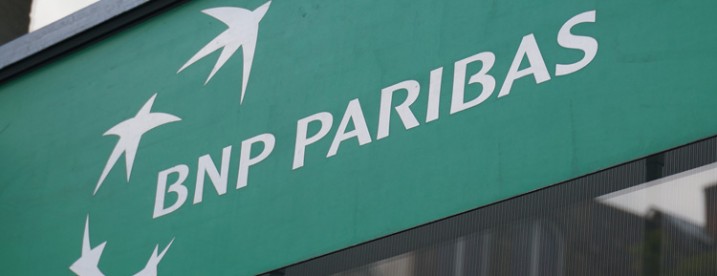
Until Global Financial Crime Punishments include Individual Prosecutions, Rogue Banks Will Continue to Do as They Please, Writes GFI’s Joshua Simmons
After the recent spate of massive money-laundering, sanctions-busting, and tax-evasion scandals involving large international banks, sometimes it seems more difficult to name a single bank that has not been exposed for wrongdoing than list all those that have. One might think that, having worked their way through so many financial institutions, investigators and prosecutors would be at a loss for what to do next. The banks, though, seem more than willing to provide more work, with many either failing to meet their ends of their settlement agreements, continuing to move money for criminals and tax-evaders, or both.
Standard Chartered, which settled charges in mid-2012 related to its widespread activities violating U.S. sanctions on Iran, Burma, Libya, and Sudan, paid an additional fine this summer for failing to uphold its obligations under the settlement. The bank may now be in line for even more punishment, after new information seems to indicate additional transactions with Iranian entities that weren’t disclosed or admitted in the original settlement. It’s not presently clear whether Standard Chartered retained a relationship with Iranian customers after its settlement in 2012, but it certainly continued to take their money after the initial investigation began.
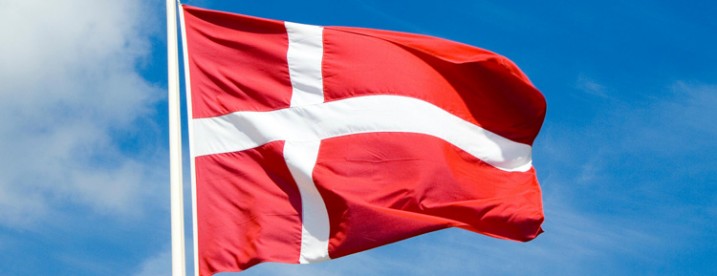
Move Strikes at One of the Biggest Tools for Laundering Money
Danish Plan Raises Pressure on European Council and Commission, G20, and U.S. to Take Action
WASHINGTON, DC – The Danish government announced today that it will create a public registry of beneficial ownership information for all Danish companies in a move lauded by Global Financial Integrity (GFI) as key to cracking down on one of the biggest tools for laundering the proceeds of crime, corruption, and tax evasion.
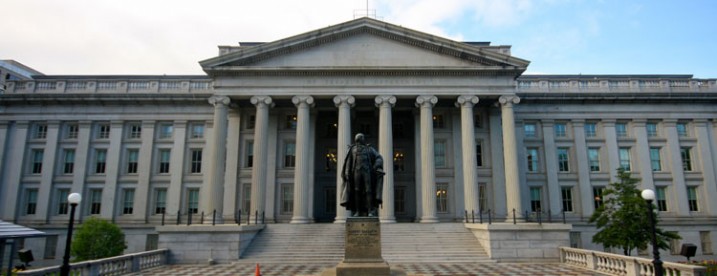
FinCEN Proposal Aims to Require U.S. Banks to Collect Meaningful Ownership Information on All Accounts, but GFI Warns of Major Loopholes in Proposal
GFI Has Advocated for Such a Requirement Since Its Founding
WASHINGTON, DC – Global Financial Integrity (GFI) welcomed a proposed U.S. Treasury Department rule aimed at curtailing the flow of dirty money through the U.S. financial system, but the Washington-based research and advocacy organization called on policymakers to significantly strengthen the draft regulation in comments submitted to the government late Friday.
Issued in late July by the Financial Crimes Enforcement Network (FinCEN), the financial intelligence arm of the U.S. Treasury Department, the Notice of Proposed Rulemaking (NPRM) on “Customer Due Diligence Requirements for Financial Institutions” seeks to require banks under U.S. jurisdiction to collect information about the beneficial owners of companies for which they open accounts, a change that GFI has advocated for since its founding and one that would bring the U.S. in line with international norms and most other advanced economies.
Global Financial Integrity (GFI) submitted comments to the U.S. Treasury Department’s Financial Crimes Enforcement Network (FinCEN) with regards to their Notice of Proposed Rulemaking on Customer Due Diligence Requirements for Financial Institutions in a letter on October 3, 2014.
By Tom Cardamone, October 2, 2014
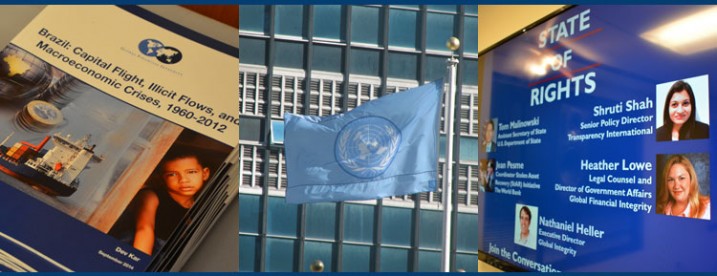
A Quarterly Newsletter on the Work of Global Financial Integrity from June through September 2014
Global Financial Integrity is pleased to present GFI Engages, a quarterly newsletter created to highlight events at GFI and in the world of illicit financial flows. We look forward to keeping you updated on our research, advocacy, high level engagement, and media presence. The following items represent just a fraction of what GFI has been up to since May, so make sure to check our new website for frequent updates.
U.S.-Africa Leaders Summit
The big news this quarter was the U.S.-Africa Leaders Summit held in Washington, D.C. in early August, which brought together leaders from fifty African nations with President Obama, and included a ground-breaking announcement that a joint high-level working group on illicit financial flows would be formed. GFI participated in the summit’s Civil Society Forum as well as several additional side events, and were proud to partner with the Open Society Foundations (OSF) and other organizations to host the event “Resources for the Future: Partnering with Civil Society for Transparency and Accountability in Africa,” which celebrated the role of civil society in advocating for transparency and accountability in Africa and discussing ways to make further progress. The high-caliber roster of speakers are too numerous to list here, but included Vice President Joseph Boakai of Liberia; George Soros, founder of OSF; Mo Ibrahim, founder of the Mo Ibrahim Foundation; and Mojanku Gumbi, a trustee of the Thabo Mbeki Foundation. The public event was followed by an African-U.S. civil society working session.







